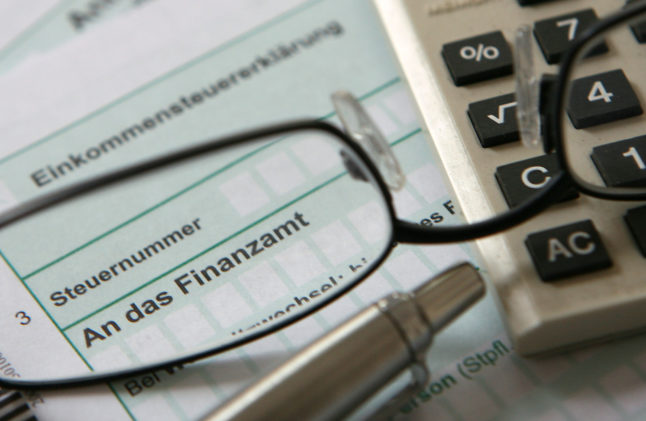Even in “normal” years, when you’re not having to work out the tax implications of ‘home office’ or the reduced working hours of Kurzarbeit, filing a tax return in Germany is daunting. Still, it often pays to do it and a good tax advisor – especially one who speaks English or your native language – can pay off. But how do you find that person and what should you be looking for?
Price is comparable, so look for other things
Tax advisory is a strictly regulated profession in Germany, to the point where tax consultants, or Steuerberater, have a fixed schedule of the rates they’re allowed to charge for certain services. Their rates are also capped depending on what your income is. A complicated case will still obviously be more expensive than an easier one, simply because it’ll take longer. If you make more money, you may also be charged more. But due to price regulations, one tax advisor isn’t able to charge significantly more or less than another for a similar case. So you’re free to let go of the stress of finding the best price and focus on finding the right tax advisor for the services you need.
“If they’re called a ‘Steuerberater’ and they have a stamp of accreditation, that person is qualified to do your tax return. Simple,” says Kathleen Parker, Managing Director of Red Tape Translation. “Now they may offer other services or forms of advice, like bookkeeping or legal advice. These are different and for those, they’re free to charge you what they like. But the price of doing and submitting your tax return is tightly regulated.”
READ ALSO: EXPLAINED: How to save money on your taxes in Germany
Finding someone familiar with international cases
As with so many things in Germany, finding help in a language you speak well is a priority when looking for the right tax advisor. But beyond navigating the technical terminology, you may well need someone familiar with international cases. That’s especially true because German residents who receive income from abroad, whether they’re self-employed doing work for international clients, or they own investments abroad, will typically have to file a tax return declaring it for that year.
“Check the LinkedIn and Xing profiles of different tax consultants and have a look at where they may have studied or worked before. That should give you some idea about whether they speak either English or your native language, and if they are familiar with particular international topics,” says Dirk Maskow, an independent tax advisor based in Berlin and Düsseldorf. “If they’re bilingual, there’s a good chance they’ll have their website in both languages.”
Depending on the firm, the tax advisor may have a lawyer on staff or be in a partnership with one. If so, check their list of available services. Legal advice on international tax cases will often be more expensive than similar advice for domestic cases, so it should be easy to spot in the price list if the firm offers such a service. If they do, contact them and ask if they might be able to handle your specific case. Certain relocation apps and services, such as Ark One, RelocateMe, or Settly, may also work with specialised tax advisors who have the expertise for your individual case. Some websites, like Steuerberater Guru, will even help you compare advisors.
READ ALSO: Everything you need to know about your German tax return in 2022
The trust factor
Once you’ve found someone with the credentials you need, what’s next before you sign on?
“It’s not surprising, but they best way to find the right tax advisor for you is often through the recommendation of a friend who is satisfied with the one they have,” says Maskow. “That’s because tax consulting has a lot to do with trust. That’s even truer if the language and country is new to you and you don’t always know what’s going on. Make sure you have an initial discussion – not just to see if the tax advisor is able and willing to deal with your case, but to make sure you have a good overall rapport.”
READ ALSO: Everything you need to know about paying taxes in Germany
Vocabulary
Tax consultant or advisor – (der) Steuerberater/(die) Steuerberaterin
Tax – (die) Steuer
Tax return or tax declaration – (die) Einkommensteuererklärung
Client – (der) Mandant / (die) Mandantin
Income – (die) Einkünfte
Capital assets – (die) Kapitalvermögen




 Please whitelist us to continue reading.
Please whitelist us to continue reading.
Member comments